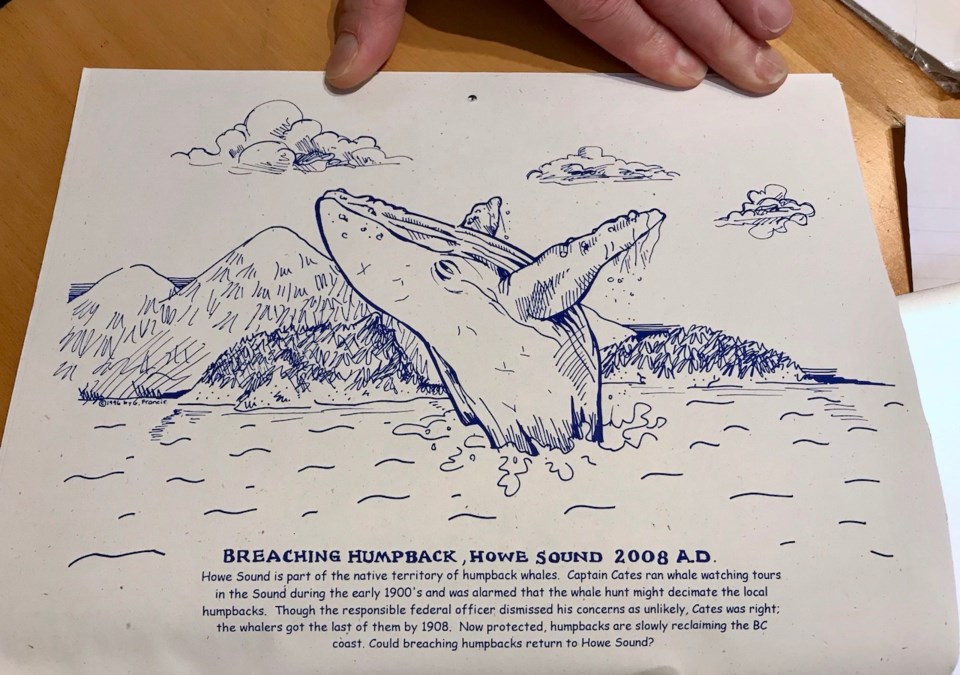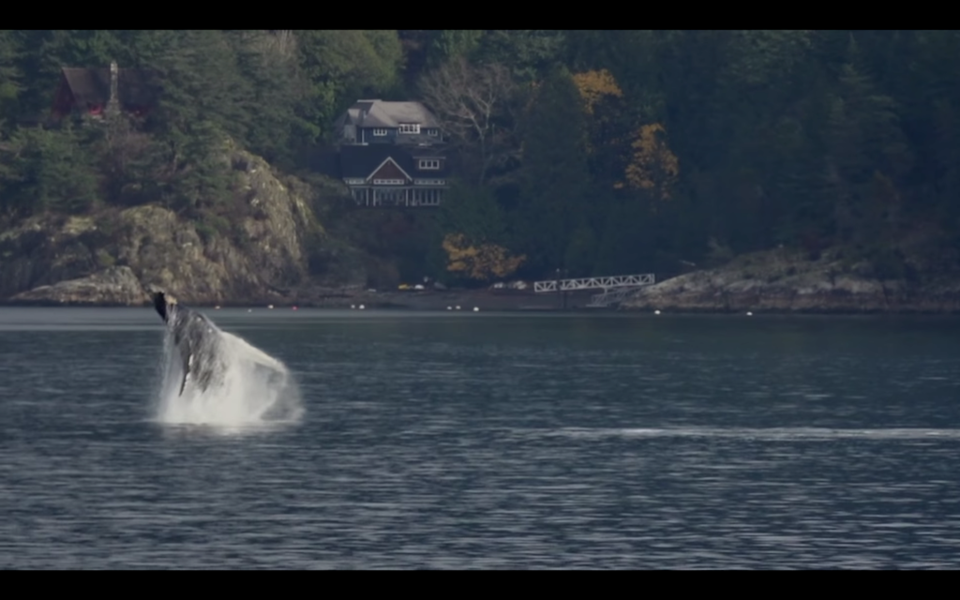Bowen’s no stranger to celebrities, and geologist turned politician turned filmmaker, Bob Turner, and his kayak are the island’s latest movie stars.
Since 2014, Turner’s been creating videos about Howe Sound. Spending days on the water, paddling, Turner’s turned the camera on the ecologically crucial feeder fish, salmon, sea lions, and the larger marine mammals that’ve returned to the sound in recent years.
His most popular movies have hit more than 10,000 views on YouTube.
Turner’s latest film, “Return of the Humpbacks,” chronicles the humpback whale sightings off the west side of Bowen Island in October 2018. Turner meets three whales (from afar) and spends days studying them, catching glimpses of dark backs rolling into the ocean, flukes disappearing beneath the waves, at times framed in the spectacular of sunset colours on the coastal mountains.
But the foundation for Turner’s latest movie is a few decades in the making.
“Most of us would be surprised to know that the waters of Howe Sound and the Strait of Georgia once supported a large population of whales, particularly humpbacks,” Turner wrote in his 1993 Nature Matters Undercurrent column.
At that point, whales hadn’t been sighted in the sound for 85 years.
In said column, Turner noted that in 1907 Bowen’s Captain J. A. Cates had petitioned Ottawa have the local whaling company cease hunting in the sound after they killed 20 whales over four months. (Cates was concerned about his whale watching business.) Ottawa said the practice was not detrimental for the whales. Within a year, the whales were gone.
“There is a pain that comes with the knowledge of such a treasure lost to us,” wrote Turner in his column. “Yet there is also an excitement that such animals belong here.”
A few years after the column, in 1997, Turner and his brother created a Howe Sound calendar. The calendar covered the history, seasons, animals, tides and more.
“We were just trying to go, ‘What do we know about Howe Sound and could we engage people in general in just paying more attention to nature in Howe Sound?’” Explains Turner.
The calendar’s cover was a humpback whale breaching –18 tonnes leaping into the air and splashing back into the ocean. It was captioned “1908,” the last time people spotted humpbacks in the sound.
By 1997, whales had been making a comeback along the B.C. coast and the Turner brothers were hopeful they could return to Howe Sound.
“We sort of wanted a big, bold, imaginary outcome. And so we you know went, okay, 100 years forward, that’s 11 years away, let’s just imagine humpbacks breaching in Howe Sound again.”
The brothers made a humpback breaching the July image and captioned it, “2008.”

“We were just guessing,” says Turner with a laugh.
But the first humpback returned to Howe Sound in 2008. And there have been sightings ever since, as the sound’s ecology recovers from more than a century of abuse.
“You start getting tingly feeling or something,” says Turner.
While Turner has filmed all sorts of marine creatures, he says that humpbacks are special to him.
“They’re just such magnificent animals,” he says. “You rarely see much of them. You’re always just catching a bit of the back, you see the the spray and you see the roll of the back and if you’re really lucky you know you see them dive and the flukes go up.
“They’re mysterious. You’re always trying to imagine what else is there, underwater.
“And they’re remarkable for whales because they have these giant gangly, pectoral fans, which no other whale has, they’re completely unique to humpbacks, which make them less fish and more almost human-y.”



